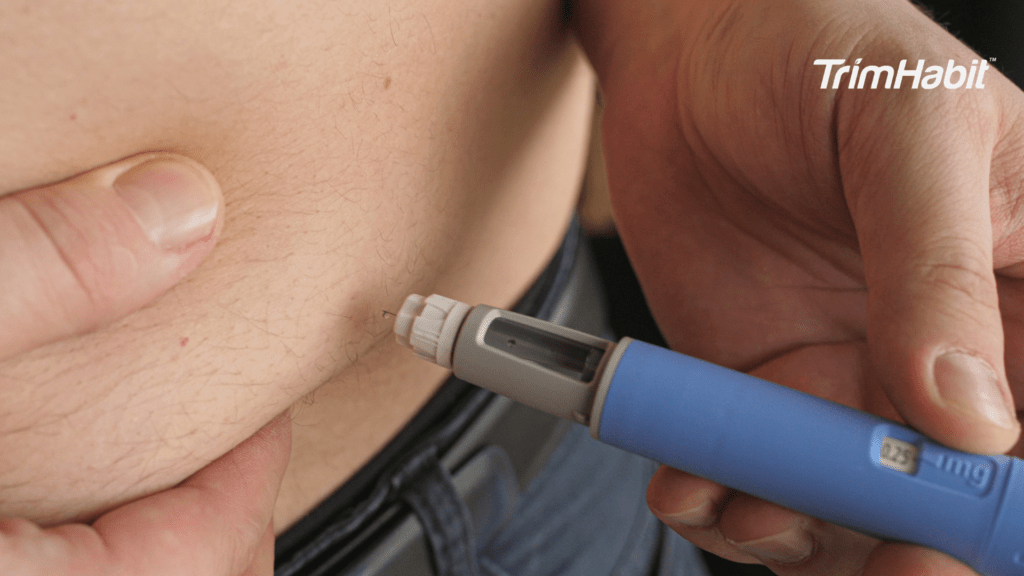Travel is exciting. It brings new experiences, new food, and the chance to step away from your routine. Yet it can also introduce challenges if you are using semaglutide. Whether your trip is for work, family, or pleasure, traveling changes your environment, your schedule, and the availability of food. These shifts can influence how you take your medication, how you eat, and how you feel. With preparation, you can enjoy every part of your trip while staying steady with your treatment.
Learning how to stay on track while traveling on semaglutide is essential for maintaining your health and ensuring consistency in your treatment. This article explores practical ways to manage your medication, food, and daily routines while traveling with semaglutide. You will learn how to plan before departure, store your medication safely, choose food that keeps you comfortable, handle time zone changes, and recover smoothly once you return home. Each section is designed to give you useful strategies that fit real travel scenarios, so you can stay confident and in control.
1. Preparing Before You Leave
The success of your trip begins before you walk out the door. Getting organized in advance helps you avoid stress later and makes sure your medication and routines remain intact.
Review Your Dosing Schedule
The first step is to look at your dosing schedule. If your injection falls on a travel day, you need to decide how to handle it. A missed dose can affect how semaglutide works for you, and it may also increase the chance of side effects once you resume1. Contact your healthcare provider before you leave to see whether adjustments are possible. In some cases, a lower dose or slight shift in timing may be recommended so you can keep your routine steady.
Pack Enough Medication
Always bring enough medication to last your entire trip. Pack multiple doses if you will be away for several weeks or if you are worried about travel delays. Having extra ensures you do not run out in case your plans change.
Carry your semaglutide pens in your carry-on luggage, never in checked luggage. Checked bags can be lost, delayed, or exposed to extreme temperatures. Keeping your medication close reduces the risk of damage or loss. Place it in your carry-on bag with cooling supplies to maintain the required temperature range.
Gather Documentation
Before you leave, check your supplies. Keep your medication in original packaging with the prescription label visible. This makes it easier to clear security checkpoints and proves that the medication belongs to you. Some travelers also carry a doctor’s note explaining that they require injectable medications. Having both a prescription and a note smooths conversations with the transportation security administration or with customs in your destination country.
Prepare for Proper Storage
Semaglutide is a temperature sensitive medication. You need to store semaglutide under the required temperature range to ensure your medication remains effective. At home, this means refrigeration before first use. On the road, you need tools such as ice packs or an insulated cooler. If you are staying in a hotel room, confirm in advance that you will have a refrigerator. If you cannot refrigerate, learn how long injectable semaglutide can stay at room temperature without losing strength. Keeping this detail in mind ensures you are never guessing whether your medication is safe.
Secure Travel Insurance
Accidents happen. Sometimes luggage gets lost, or medical issues arise. Having travel insurance adds a layer of security. Review whether your travel insurance covers lost medication or replacement of medical supplies. This kind of preparation gives you options if something unexpected happens while you are away.
2. Managing Medication During Transit
Travel days are often the hardest. Airports, long car rides, and crowded spaces make it easy to lose focus. Protecting your medication and sticking to your treatment plan during transit prevents headaches later.
Carry Your Medication Safely
Always keep semaglutide with you. Place it in your carry-on bag with alcohol swabs, ice packs, and a thermometer. This ensures your medication remains within the correct temperature range. Never expose it to direct sunlight or leave it in a hot car. Even brief exposure to extreme heat can damage your medication.
If questioned at security checkpoints, calmly explain that you are carrying medical supplies. Show the prescription label and doctor’s note if requested. Most staff are familiar with injectable medications, and having clear documentation makes the process easier.
3. Handle Time Zone Changes
When you are crossing time zones, you may be unsure when to take your next injection. Set reminders on your phone to match your destination’s time zone with your medication schedule. If you accidentally miss a dose, do not take double the amount. Instead, follow instructions from your provider and resume with the next scheduled dose. If you are uncertain, contact your healthcare provider immediately.
4. Plan For Emergencies
Keep a list of local healthcare providers in your destination country. In case of medical emergencies, you will know exactly where to turn. This preparation is especially useful if you need to replace lost medication or seek treatment quickly.
5. Eating Smart During Travel
Food is one of the best parts of travel. Yet when you are using semaglutide, you may need to be more thoughtful about your choices.
Pack Snacks
Before you leave, pack travel-friendly snacks. A few healthy snacks like roasted chickpeas, dried fruit, or nut butter packets can help you manage hunger when meals are delayed. Keeping travel-friendly snacks in your carry-on makes them accessible during long flights or a road trip.
Choose Balanced Meals
Travel can tempt you with rich foods. For weight management, focus on meals that include protein, vegetables, and healthy fats. If you want to try local specialties, ask for smaller portions or share with a friend. Eating smaller servings lets you taste new dishes without overwhelming your stomach.
Stay Hydrated
It is easy to forget hydration while traveling. Yet dehydration can worsen side effects, such as nausea. Always drink plenty of water and keep a bottle nearby. Regular hydration helps you stay hydrated and makes your digestion more comfortable.
Manage Meals in Restaurants
When managing meals at restaurants, do not hesitate to ask for adjustments. Request grilled instead of fried, or ask for extra vegetables. Most restaurants are willing to adapt. Being clear about your needs helps you stay steady while still enjoying the food.
6. Staying Active And Comfortable
Travel often mixes long periods of sitting with bursts of walking. Both extremes can affect your comfort.
Stretch in Transit
During long flights or car rides, stand and stretch whenever possible. Even small movements help circulation. If you are on a bus or train, take advantage of stops to stretch your legs.
Walk Whenever Possible
Exploring your destination on foot adds movement and supports digestion. Short walks after meals can also reduce discomfort.
Use Hotel Facilities
Many hotels provide gyms or pools. Even a short morning workout keeps your muscles engaged and helps you stay energized throughout the day.
7. Handling Stress And Lifestyle Changes
Even with preparation, travel disrupts routine. You may face fatigue, irregular sleep, or stressful moments.
Manage Stress
Learn techniques to manage stress, such as deep breathing, journaling, or listening to music. Staying calm helps you handle unexpected changes.
Stay Consistent
Keep to your medication regimen as closely as possible. While life takes you away from your usual environment, staying steady with your plan ensures long-term success.
Avoid Temperature Risks
Never leave your semaglutide in a car or in direct sunlight. Always avoid extreme temperatures. Use cooling tools if refrigeration is unavailable and check frequently that your medication is stored correctly.
8. What To Do If Something Goes Wrong
Despite preparation, you may face problems during your trip. Having a plan reduces stress.
If You Lose Your Medication
Losing medication can be frustrating. First, check if your travel insurance or travel insurance covers replacements. Then, contact local healthcare providers for assistance. Finally, update your home healthcare provider for instructions on resuming your treatment.
If Side Effects Worsen
Sometimes new food, lack of sleep, or jet lag increases side effects. If nausea or discomfort becomes severe, reach out to your healthcare provider immediately. For minor issues, light remedies such as ginger tea, peppermint, or smaller meal portions may help.
9. Returning Home
Once your trip ends, focus on restoring routine.
Resume Your Treatment
Once home, return to your normal medication schedule. If you shifted timing while abroad, adjust slowly back to your regular routine. This helps ensure your medication remains effective.
Reflect on Your Experience
Think about what worked and what challenged you. Did you pack extra supplies? Were you able to follow your treatment plan? Reflection helps you prepare even better for future trips.
Continue Your Progress
Each trip is part of your larger weight loss journey. Staying mindful helps you continue your weight loss progress while enjoying the freedom of travel. With planning and consistency, semaglutide traveling does not have to derail your progress.
Final Thoughts: How To Stay On Track While Traveling On Semaglutide
Travel is about experiencing life in new ways. With preparation, you can enjoy the excitement of new places while keeping your treatment consistent. From remembering to plan ahead, to carrying medical supplies, to ensuring proper storage, your actions protect your health while you are away.
Every trip becomes easier once you practice these habits. When you organize, prepare, and remain flexible, you can semaglutide safely wherever you go. Your health goals are within reach, even when the journey takes you far from home.









